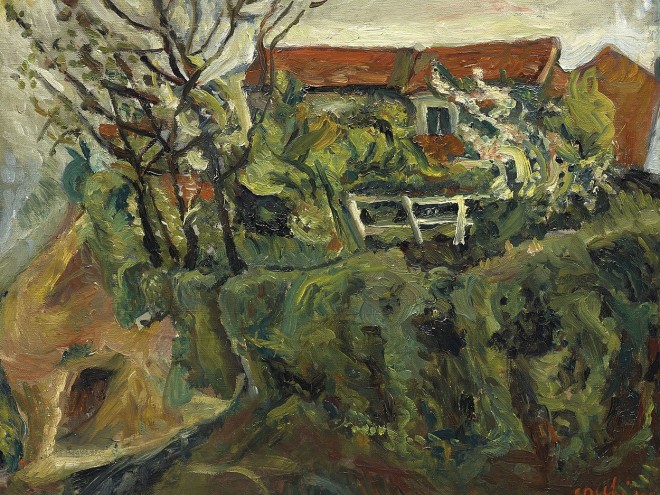Those who have followed the career of Steve Stern will no doubt hear the title of his new novel, The Village Idiot, and prepare for a modern Yiddishkeit folktale — something about, say, a present-day Gimpel in Tennessee, wherein some leap of the supernatural will afflict the protagonist.
Sorry, no. The idiot in question left the village long ago. And while idiocy is in abundance in the eponymous hero, there is also unquestionable genius.
Stern’s formidable novel is about the real-life artist Chaim Soutine, who was born in the Belarusian town of Smilavičy in 1893 (and whose local nickname was apparently the “shtot meshugenah,” or “village idiot”) but moved to Paris on the eve of the First World War to become a great artist in an era of unparalleled talent.
And while a straightforward story about a relatively well-known historical figure feels like a departure for Stern (pity the writer who doesn’t try something completely different), it’s also possible to see how he would have been drawn to a character like Chaim Soutine.
Soutine is the shtetl fool whose brilliance cannot be detected within the confines of a backwater, but who comes to full flower in Paris alongside Pablo Picasso and Marc Chagall (both of whom make brief cameos in the book, and both of whom Soutine holds in some measure of contempt.)
The Paris of a century ago — the terrain of Ernest Hemingway, F. Scott Fitzgerald, and Josephine Baker — has of course been well trod in everything from A Movable Feast to Midnight in Paris. But there is a less remarked-upon aspect of the School of Paris: its distinct strain of Eastern European Jewry. From Bulgaria came Jules Pascin. From Lithuania, Jacques Lipchitz. Chagall and Ossip Zadkine both hailed from Vitsebek (in Belarus), and Moise Kisling was born in Poland.
These visionary minds who reinvented modern art could have easily been the town sofer a generation earlier; instead, they were carousing with each other at Café de la Rotonde.
The story of a great artist’s life can, like Somerset Maugham’s fictionalized life of Paul Gauguin in The Moon and Sixpence, serve as an excellent vehicle to opine on the nature of art. But with Soutine, Stern is more interested in the self-punishment, self-loathing, and squalor of the artist. Unlike his best friend, Amedeo Modigliani, Soutine does not treat himself to Paris’s various louche pleasures. He rarely drinks. He doesn’t chase after young Parisian models. He speaks in broken, half-comprehensible phrases and spits insults at one and all, choosing not to spare benefactors. He doesn’t even bathe.
And yet the richness of his work supersedes the poverty of his hygiene.
Fame and (moderate) fortune find Soutine, as do a handful of women who dedicate themselves to his well-being. When Soutine comes into this early money, his first lavish purchase is the carcass of a cow — which he brings back to his studio so that he can attempt his own recreation of Rembrandt van Rijn’s seventeenth-century century painting, “The Slaughtered Ox.” The carcass quickly rots, and its putrid smell prompts complaints from the neighbors and a visit from Parisian sanitation officials.
This is devotion that Soutine’s fellow Jews know well; it is the devotion of a zealot. Everything is about his art, just as the rabbis in Smilavičy made everything about the law (which is not to say that Soutine is religious; he is contemptuous of his shtetl childhood).
Little is known about Soutine (Stern’s main source is Stanley Meisler’s Shocking Paris), so Stern has great freedom to fill in the gaps. But he nevertheless follows the contours of Soutine’s life. World historical events begin to close in on Soutine, and even his cloistered, unlovely existence begins to evaporate.
Yet even in his moment of greatest peril, as his fate looks clearly bad, Soutine reminds his lover Marie-Berthe Aurenche, “And don’t forget please my easels and oils!” They are the words of the faithful. Artist and zealot, two sides of the same coin.
Max Gross is a novelist and journalist who lives in Forest Hills. His 2020 novel, The Lost Shtetl, won a National Jewish Book Award.





